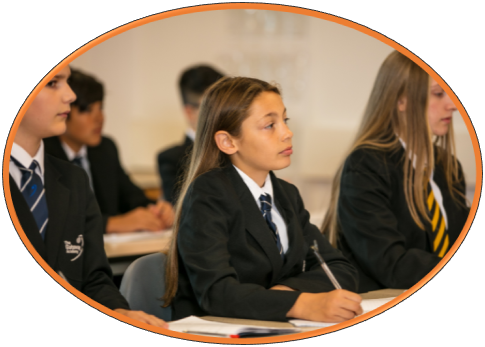Religious Education

Curriculum Overview
 All students study Religious Education from Years 7 to 11 either as a discrete subject or woven into the fabric of PSHE lessons. We provide a broad-based curriculum in Religious Education in which students will increase their knowledge and understanding of the world we live in whilst being encouraged to respond to significant questions of meaning and value in a caring and sharing ethos. We cover the philosophy of religion as well as the major faiths and belief systems of the world.
All students study Religious Education from Years 7 to 11 either as a discrete subject or woven into the fabric of PSHE lessons. We provide a broad-based curriculum in Religious Education in which students will increase their knowledge and understanding of the world we live in whilst being encouraged to respond to significant questions of meaning and value in a caring and sharing ethos. We cover the philosophy of religion as well as the major faiths and belief systems of the world.
Intent
Religious Education explores a range of different beliefs and cultures and the impact of religious beliefs on students’ lives and the lives of others.
Implementation
Teachers will:
- Plan an engaging scheme of work that builds knowledge and skills incrementally and allows students to be immersed in the culture and customs of the world’s major religions. The curriculum will include opportunities for students:
- To visit religious buildings and meet with members of that faith e.g. Westminster Abbey, Sikh Temple;
- Experience religious practices to better understand their significance;
- Ensure that the curriculum is balanced so that every student has an understanding of different religions and life within those religious beliefs;
- Create a classroom ethos where students are encouraged to open their minds to the ways of living and beliefs of others: where debate can take place in an environment where it is acceptable for students to have any faith, or no faith;
- Help students to understand that in order to achieve cohesion British society aims to value tolerance of all religions;
- Make a clear distinction between the meaning of faith, religion and religious denominations.
Impact
Students will:
- Have a comprehensive knowledge of the major world
 religions and as a result will develop as confident, caring and fulfilled members of a diverse and truly equal society;
religions and as a result will develop as confident, caring and fulfilled members of a diverse and truly equal society; - Have a deep understanding of the spiritual, moral, social and cultural questions that surface again and again in their lives;
- Confidently and sensitively express an opinion about a religious belief and understand people may have a differing view;
- Show tolerance, respect and an understanding of those with different beliefs and of the world around them.
Parents and carers have the right to withdraw their child from all or part of RE.
Staff:
| Name | Contact |
| Mrs N Ullah | najima.ullah@theglc.org.uk |
| Mr P Morris | paul.morris@theglc.org.uk |
| Mr J Williams | joe.williams@theglc.org.uk |
| Mr J Bonnett | jon.bonnett@theglc.org.uk |
| Ms A Clarke-Irons | abby.clarke-irons@theglc.org.uk |
| Mrs A Shannon | abbey.shannon@theglc.org.uk |
| Mrs A Earp | alison.earp@theglc.org.uk |
| Mrs T Bryant | trudi.bryant@theglc.org.uk |

